Search Results
Showing results 1 to 20 of 24

Beat the Clock: Sorting Networks
Source Institutions
Even fast computers are limited to how quickly they can solve problems. One way to speed things up is to use several computers at once.

Count the Dots: Binary Numbers
Source Institutions
Data in computers is stored and transmitted as a series of zeros and ones. Learners explore how to represent numbers using just these two symbols, through a binary system of cards.
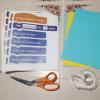
Program Your Morning
Source Institutions
In this activity, learners will explore coding by arranging words and phrases to create an order of operations in this low tech version of computer programming.
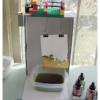
Overnight Painting Machine: Pico Cricket Activity
Source Institutions
This activity requires a Pico Cricket (tiny computer).
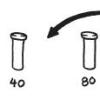
Lightest and Heaviest: Sorting Algorithms
Source Institutions
Computers are often used to put lists into some sort of order—for example, names into alphabetical order, appointments or e-mail by date, or items in numerical order.
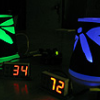
Social Fireflies: Pico "Firefly" Communication
Source Institutions
Make two firefly lanterns, then program them to blink to one another and change colors.

Number Sense and Computation: Food For Thought
Source Institutions
In this math lesson, learners identify and compare unit costs of given items. Learners use computation skills, problem solving and number sense to find the cost of an ounce of cereal.
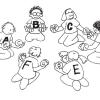
The Orange Game: Routing and Deadlock in Networks
Source Institutions
When a lot of people share one network (such as cars using roads, or messages getting through the Internet), there is the possibility that competing processes will create a “deadlock," or an interrupt
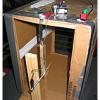
Clap Sensor: Build a Sound Sensor Using a Pico Cricket
Source Institutions
This activity requires a Pico Cricket (tiny computer). Learners work on designing and building a sound sensor out of household materials, like plastic wrap and cardboard.
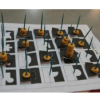
Fruity-Glows: Pictures of Health on a Microarray Canvas
Source Institutions
In this activity (page 12), learners apply the concepts of pixilation and pointillism to the world of biomedical science.
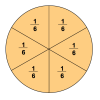
Number Sense and Computation: To Half or Half Not
Source Institutions
In this math lesson, learners use slices of bread and geoboards to explore several ways to divide a rectangle in half. Learners also identify equivalent fractions that represent one-half.

Puzzled Partners
Source Institutions
In this web-based activity, learners try to figure out who in an online chat room has their matching puzzle piece.
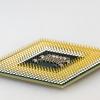
Crime Scene: The Case of the Missing Computer Chip
Source Institutions
Learners use scientific processes to solve a crime. As they get clues, learners must create a hypothesis then adjust that hypothesis as more information is revealed.

Musical Gloves
Source Institutions
Put on a pair of gloves and be the conductor of your invisible orchestra!
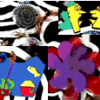
Kinetic Sculpture: Program the Pico Cricket to Make Your Art Light Up or Spin
Source Institutions
Use a Pico Cricket (micro-controller) to animate your art! You can program a Pico Cricket to make your art spin, light up, or make music.
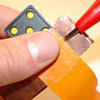
Smart Domino Tricks
Source Institutions
In this activity, you take regular dominoes, and turn them into conductive switches that can turn on a LEGO RCX block or Pico Cricket (micro controller). LEGO RCX block or Pico Cricket is required.
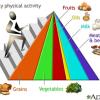
In Proportion
Source Institutions
Through this nutrition activity (page 5 of the PDF), learners will understand—and probably be surprised by—how big serving sizes of various foods should be.

A-Mazing Robot
Source Institutions
This activity lets you program your 'robot' (a willing friend) to pick up and dispose of some 'toxic waste' using as few commands as possible.

Musical Sculpting Machine: Squeeze Play-Doh to Make Music
Source Institutions
Play-Doh is conductive! Use the semiconductive qualities of Play-Doh to make your own squeezable instrument. Pico Cricket is required.
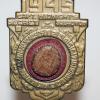
Secret Writing Devices
Source Institutions
In this activity about encryption, learners cut out a secret decoder badge from a handout and use it to encode messages to each other.
